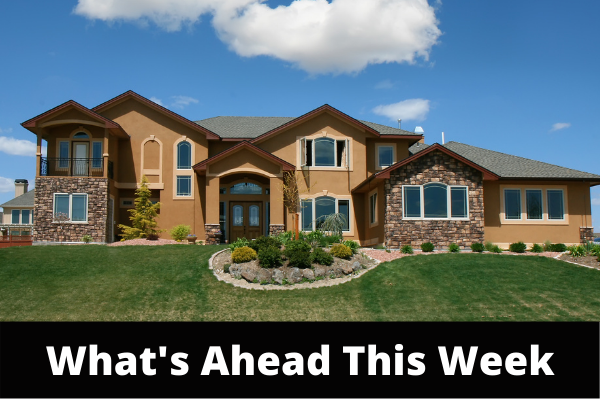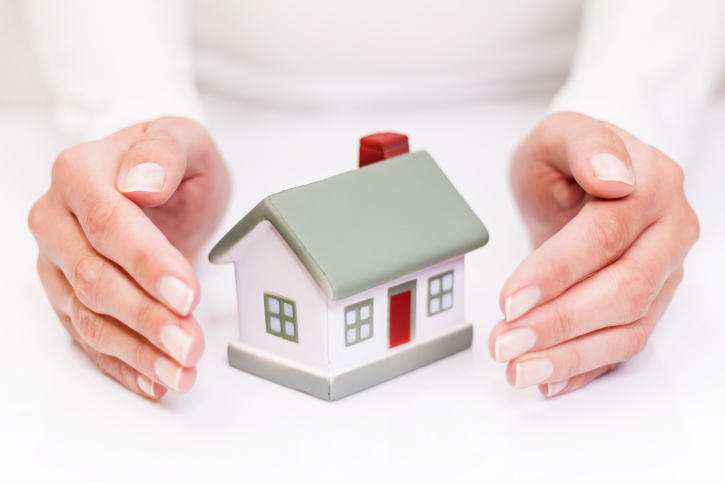What’s Ahead For Mortgage Rates This Week – February 8, 2021
 Last week’s economic news included Commerce Department readings on construction spending, labor sector reporting on public and private-sector job growth, and the national unemployment rate. Weekly reports on mortgage rates and jobless claims were also released.
Last week’s economic news included Commerce Department readings on construction spending, labor sector reporting on public and private-sector job growth, and the national unemployment rate. Weekly reports on mortgage rates and jobless claims were also released.
Construction Spending Driven by Housing Sector in December
The Commerce Department reported a one percent gain in construction spending in December to a seasonally-adjusted annual pace of $1.49 trillion. Residential construction drove spending for the seventh consecutive month with a 3.10 percent gain in spending. Construction for public projects rose by 0.50 percent; private-sector spending on non-residential construction fell by -1.70 percent.
Demand for housing remained high as supplies of previously-owned homes ran below average and homebuyers turned to new housing developments. Flight to less congested metro areas continued to drive demand for single-family homes. Builders cited rising materials costs and land and labor shortages as ongoing challenges to building affordable homes.
Mortgage Rates Hold Steady as Job Growth Improves
Freddie Mac reported little change in average mortgage rates last week. The average rate for 30-year fixed-rate mortgages was unchanged at 2.73 percent. Rates for 15-year fixed-rate mortgages averaged 2.21 percent and one basis point higher. The average rate for 5/1 adjustable rate mortgages was two basis points lower at 2.78 percent. Discount points averaged 0.70 percent for 30-year fixed-rate mortgages and 0.60 percent for 15-year fixed-rate mortgages. Points for 5/1 adjustable rate mortgages averaged 0.30 percent.
Public and private-sector job growth improved in January. ADP reported 174,000 private-sector jobs as compared to a negative reading of -78,000 jobs in December. Analysts forecasted 48,000 private-sector jobs added in January.
The federal government’s Non-Farm Payrolls report showed 49,000 public and private-sector jobs added, which fell short of the expected 50,000 jobs added, but the job growth reading was good news when compared to December’s reading of -227,000 jobs lost. In related news, the national unemployment rate fell to 6.30 percent as compared to December’s reading of 6.70 percent
Fewer Jobless Claims Filed
779,000 initial jobless claims were filed last week as compared to the prior week’s reading of 812,000 first-time claims filed. Continuing jobless claims also fell with 4.59 million ongoing claims reported; 4.79 million continuing claims were filed during the prior week.
What’s Ahead
This week’s scheduled economic reporting includes readings on inflation and consumer sentiment. Weekly readings on mortgage rates and jobless claims will also be released

 Finding a proper mortgage loan and understanding the processing procedures behind the loan is the basis of good research. The down payment on a mortgage loan is typically significant when dealing with mortgage insurance.
Finding a proper mortgage loan and understanding the processing procedures behind the loan is the basis of good research. The down payment on a mortgage loan is typically significant when dealing with mortgage insurance. There are lots of homeowners who fall on rough times from time to time. For example, some people may be in the midst of changing jobs. Other people might be going back to school. When this happens, it can be hard for homeowners to keep up with their mortgage payments. Even though they might be thinking about waiting for the bank to do something, this would be the ultimate mistake.
There are lots of homeowners who fall on rough times from time to time. For example, some people may be in the midst of changing jobs. Other people might be going back to school. When this happens, it can be hard for homeowners to keep up with their mortgage payments. Even though they might be thinking about waiting for the bank to do something, this would be the ultimate mistake.